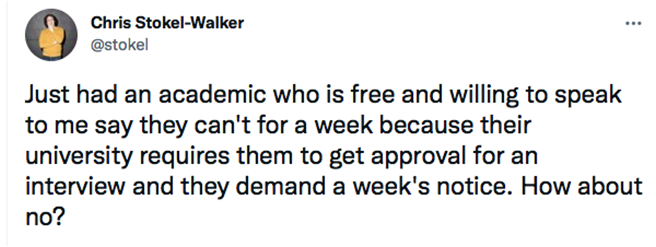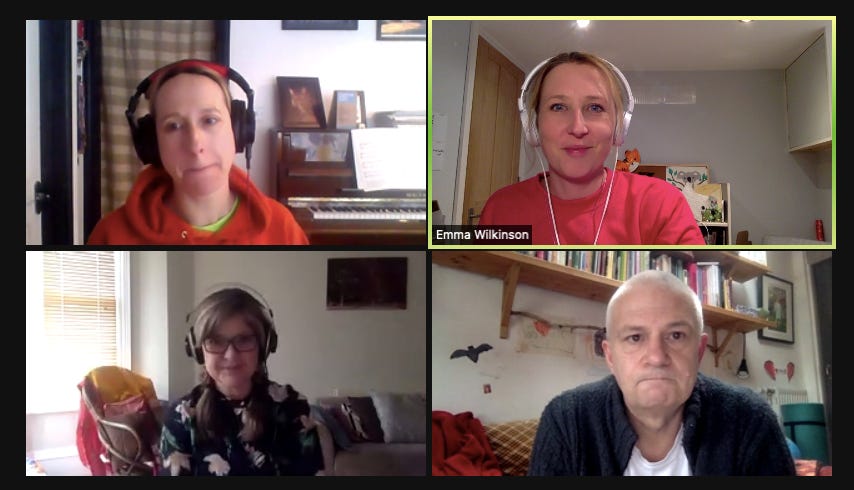Last week we ran a webinar for Journo Resources on How to pitch to and work with international journalism clients. Lily and Emma both work for publications overseas and have picked up lots of experience over the years without really realising it. So we thought in this week’s newsletter it might be useful to summarise some of the key tips we have learnt along the way.
The first thing to point out is that there is no one way to do things. Payments, paperwork, laws and professional practice vary from country to country so you may need multiple processes depending on the countries you are working with. But as freelancers we are used to being flexible and juggling multiple ways of working so this will soon become second nature. It’s not really much different from working for different publications in the UK, or wherever you are based.

Find overseas work opportunities
This is a similar process to finding work in the UK. Social media and newsletters are your best friend here. A great starting point is this blog which lists the best freelance newsletters for freelance writers including ones which focus on jobs in the UK, USA and Australia. Worldwide Freelance Writer also has a newsletter and a free downloadable book of writing markets in northern America. Following curated content on Twitter is also worth your time such as @pitchestoriches which has has a database of global writing opportunities. It’s also a good idea to set up a Tweetdeck with key search terms and including the countries you want to work in. Journo Resources has a great tool for pitching phrases and a search term cheat list.
Ask yourself these questions before putting a pitch together
Can I speak the relevant language?
Is my idea relevant to that specific country?
Do I have access to relevant communities and sources?
Do I have country specific data or research?
Can I nationalise a global or universal theme?
Have I done my research?
By answering these questions you will have a good understanding of whether your story is relevant to the country and publication you intend to pitch to. Always find case studies, experts and data relevant to the country and make sure you are in key social networks or press release databases so you have access to local sources and statistics. For example Lily uses a Hong Kong parenting Facebook group to source lots of exclusive content for the South China Morning Post plus research database EurekaAlert. Always think about the cultural context because an issue that is prominent in your home country may not be relevant overseas. But at the same time there will always be universal themes (i.e mental health, parenting, obesity) which you can nationalise.
Consider language carefully
Your pitching process should be the same wherever in the world you are pitching as long as you explain how the story is relevant to the publication’s audience. But one thing you need to consider particularly if you are pitching in English is whether to use English or US English spellings. Also be aware that vocabulary, slang, idioms and cultural references will vary between countries so don’t start referring to pavements when pitching to a US publication. And remember that tone can come across very differently in an email particularly if there is a slight language barrier so choose your words carefully and don’t get upset if you receive a seemingly abrupt or impolite email from an overseas editor or accounts team.
Be time zone aware
Working with international clients may mean you are communicating with an editor and sources who are awake when you are asleep and vice versa. You need to factor this in when sending emails, arranging meetings and setting up interviews. There is no point pitching if the email is going to land in the editor’s inbox in the middle of the night or at the weekend. Also accept that you may have to work at odd hours or get up super early to conduct an interview in Australia. Also be aware that there are two time zones in the UK and we have just gone into British summer time so that can be an added confusion.
Check editorial processes
Although the laws and ethics surrounding journalism are generally similar around the world there are some big professional practice differences. In some countries all government officials have a right to copy/quote approval whereas in other countries there may not even be a right of reply. Fact-checking may go through a lengthy process with many intermediaries or you may be expected to fact check your own work. If in doubt ask in networks and clarify anything you are unsure of with your commissioning editor. Also be aware that some organisations may take longer to respond to press requests than you are used to.
Learn the best way to get paid
As a general rule of thumb do not use your high street bank to receive international payments. You will get stung with hidden fees which may mean losing 10% to 15% of your commission. There are now plenty of alternative options and international accounts like Wise and Revolut won’t charge you fees and can offer a decent exchange rate. However these services are not available in all countries / currencies so you may have to use platforms like PayPal or even MoneyGram which could incur fees. But it will still be cheaper than your bank. If you are being paid via an umbrella company in another currency such as dollars and it is being converted into your home currency, for example pounds sterling, then check the exchange rate before you ask to withdraw the money. Make sure your currency hasn’t suddenly plummeted against the original currency as you will lose out. You can check how currencies are performing here.
Expect additional paperwork
It is likely that in order to get paid there will be additional paperwork to fill in and each country will have its own set of forms. If you are working for a US client then you will need to fill in a W-8BEN form for each new client to declare that you pay tax in your own country. Meanwhile some countries may tax you automatically which means you need to record this on your annual tax return so you don’t get taxed twice. If in doubt get advice from an accountant. Finally if you have insurance then let your provider know if you are working for international clients as it may affect your premium.
What’s coming up
Series 7 of the podcast launches next week! We are really excited to be bringing you a range of great topics from photojournalism to shorthand to funding a project, and more. The first episode will drop on April 6 at 8am and is a fascinating insight into the world of photojournalism and travel photography.
Triumph of the week
Surviving a bout of Covid thanks to the understanding of very nice commissioning editors who were happy to move deadlines back.
That feeling when…
You have finally managed to update your online portfolio with all your latest cuttings.
We love to hear your feedback on everything we do, so feel free to drop us an email anytime at freelancingforjournalists@gmail.com
Bye for now!







